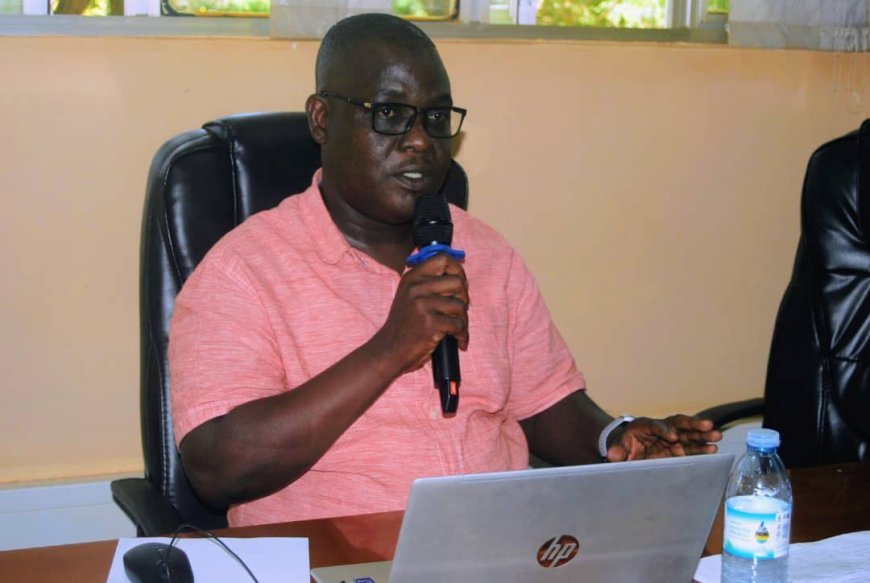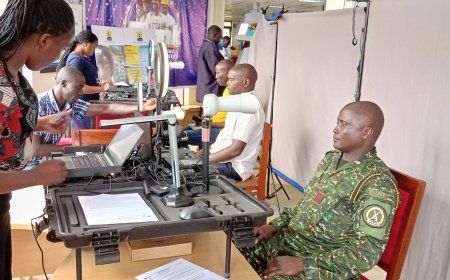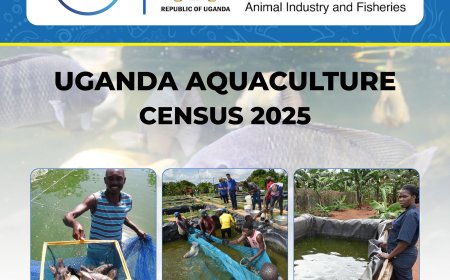Ministers Should Stop Dancing at Rallies and Start Speaking About Tangible Achievements
It’s time ministers moved away from stage performances and turned their focus to honest dialogue. They should anticipate and answer tough questions — when a local health centre will be staffed, when a school will receive books, or how long it will take for clean water to reach a village. Genuine political support is built on trust, not excitement.

By Ismail Kibedi – Principal National Guidance Officer & Parliament Liaison Officer, Ministry of ICT and National Guidance
In Uganda’s evolving political landscape, rallies remain vital spaces where citizens connect directly with their leaders. Yet, many of these gatherings have devolved into theatrical displays rather than platforms of meaningful engagement. Ministers are increasingly seen not as stewards of public service and policy but as entertainers — dancing on stages while sidestepping the very issues they were elected or appointed to address.
The electorate deserves more.
Ugandans do not attend rallies to be amused by ministers rehearsing dance routines; they come with questions, with expectations, and with hope. They want to know what is being done to improve their lives — when a road will be fixed, when electricity will reach their trading centre, when drugs will arrive at their health facility, and when their children will access better education. They want clarity, vision, and accountability. Dancing may evoke laughter and lighten the mood, but it cannot pave roads, lower the cost of living, or create jobs.
What the public needs from their leaders is substance, not spectacle.
There is a considerable body of government work that, if properly communicated, could uplift public confidence. Ministers should be using their stage time to inform citizens of such progress — real, measurable achievements that demonstrate the government’s commitment to development.
1. Infrastructure Development:
The road network has seen exponential growth in the past decade. According to the Uganda National Roads Authority (UNRA), the total paved road network increased from 3,000 kilometres in 2010 to over 6,000 kilometres by 2023. Iconic projects such as the Entebbe Expressway, the Kampala Flyover, and the expansion of the Northern Bypass are all milestones in transforming connectivity and trade.
2. ICT and Digital Transformation:
Uganda's ICT sector is thriving under the Digital Uganda Vision, which is integrating digital technologies into every sector of life. Over 80% of government services are now available online — from passport applications to land title processing. The National Backbone Infrastructure (NBI) has connected over 600 government institutions with high-speed internet, and rural ICT hubs are providing innovation spaces for youth and entrepreneurs.
3. Rural Electrification:
Electricity has reached more trading centres than ever before, enabling local economic activity and improving security. This is an achievement worth sharing at rallies, backed by data and real stories — not choreographed dance sequences.
4. Agriculture Modernization:
With agriculture being the backbone of Uganda’s economy, government programmes like Operation Wealth Creation (OWC) and the Agriculture Cluster Development Project (ACDP) have increased access to quality inputs and market information. Coffee exports reached record highs in 2022, and irrigation systems are now serving dry regions, enabling year-round farming.
5. Education Reform:
Through Universal Primary Education (UPE) and Universal Secondary Education (USE), millions of children now attend school, with net primary enrolment remaining above 90%. Technical and vocational training institutions are equipping youth with job-ready skills, helping to curb unemployment.
6. Health Sector Investment:
Maternal mortality has dropped significantly. Between 2016 and 2021, over 150 health centres were upgraded. New regional hospitals, including Kawempe and Kiruddu, along with increased ambulance distribution, have brought medical services closer to rural communities.
7. Economic Empowerment Through PDM:
The Parish Development Model (PDM), with over UGX 1 trillion allocated, is designed to transition subsistence households into the money economy. If implemented effectively and transparently, PDM could revolutionize rural livelihoods. Ministers must explain its mechanics and expected impact — not brush over such a pivotal programme with hollow theatrics.
8. Public Service Reform:
Innovations such as the Integrated Personnel and Payroll System (IPPS) have curtailed ghost workers and boosted payroll efficiency. Enforcement of Customer Service Charters is improving service delivery accountability across ministries.
These are the developments the electorate needs to hear about — framed in plain language, backed with evidence, and linked to everyday realities.
The average Ugandan is burdened by inflation, rising fuel prices, limited employment opportunities, and inadequate social services. When they take time to attend a rally, it’s not for amusement. They come with real concerns. They deserve clear communication about government strategies and interventions, and they expect their leaders to engage them with respect and transparency.
It’s time ministers moved away from stage performances and turned their focus to honest dialogue. They should anticipate and answer tough questions — when a local health centre will be staffed, when a school will receive books, or how long it will take for clean water to reach a village.
Genuine political support is built on trust, not excitement. Leaders who communicate clearly, listen actively, and report truthfully are the ones who inspire lasting loyalty. Let political rallies become platforms for truth, vision, and accountability — not talent shows.
Ministers must remember: Uganda deserves better than a spectacle. It deserves responsible, results-oriented leadership. Let the musicians and cultural troupes do the dancing.
Let the ministers do the reporting. That is the Uganda we owe our people.





















































































































